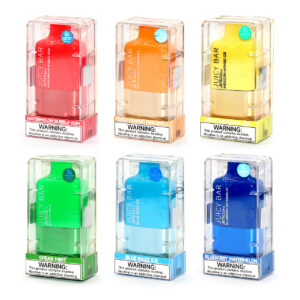Lion’s Mane, Reishi & More: Exploring Popular Mushroom Supplements in the UK
The UK has gone absolutely mushroom mad these past few years. What was once considered a niche health fad has exploded into the mainstream, with everything from corner shops to high-end retailers stocking various mushroom supplements. The British wellness scene has fully embraced these functional fungi, with companies like Love Hemp getting in on the action. Love Hemp started in the CBD world but has cleverly expanded into mushroom formulations – smart move considering how many Brits are now reaching for Reishi rather than just their regular multivitamin.
Honestly, it’s about time these mushrooms got their moment in the spotlight here. Asian cultures have been using these powerhouses for centuries while we’ve been sleeping on them. Now we’re finally catching up!
The Mushroom Superstars Taking Over UK Health Stores
Lion’s Mane: The Brain Booster
This weird-looking mushroom (seriously, Google it if you haven’t seen one – it looks like a shaggy lion’s mane) is probably the most talked-about fungus in UK wellness circles right now.
Everyone from university students cramming for exams to city professionals and retirees seems to be taking it. Why? It’s got a reputation for being like natural brain food. There’s some decent research suggesting it might help with producing something called nerve growth factor – helping your brain cells stay healthy or even grow new connections.
People who take it regularly swear they feel more focused and clear-headed. One mate who works in finance started taking it instead of his usual third coffee of the day and reckons his afternoon brain fog has lifted considerably.
You’ll find Lion’s Mane in capsules mostly, though the powder form is gaining popularity for adding to smoothies or coffee. It doesn’t taste great on its own – kind of seafoody when fresh – but most supplements don’t have much flavour anyway.
Reishi: The Stress-Buster
If you’re feeling burnt out from the daily London grind (or anywhere else in the UK for that matter), Reishi might be your new best friend. This red-brown woody mushroom has been nicknamed the “mushroom of immortality,” which sounds like marketing nonsense but comes from its 2,000+ year history in Chinese medicine.
Reishi seems to help your body handle stress better – it’s what wellness people call an “adaptogen.” The science suggests it might give your immune system a boost and help with sleep. Some studies even point to benefits for heart health and blood sugar levels.
Fair warning, though – it’s properly bitter! Most people take it as capsules or in those ready-made mushroom coffee mixes that are popping up everywhere. Taking it before bed seems to be the popular choice, with loads of online reviews mentioning better sleep.
Chaga: The Antioxidant King
This doesn’t even look like a mushroom – more like someone burnt a lump of wood. Chaga grows mainly on birch trees in cold places and has become massively popular with the immune-boosting crowd.
The main selling point is its ridiculous antioxidant content. Lab tests show it has one of the highest antioxidant ratings of any natural food. Beyond fighting free radicals (the things that age you faster), people take it for inflammation and immune support.
Chaga has a slightly earthy, almost vanilla-like taste that’s not bad. Plenty of people brew it like a coffee alternative. One colleague swears by her morning Chaga instead of coffee, saying she gets the energy boost without the jitters.
Cordyceps: The Energy Mushroom
This one has the wildest backstory – in nature, it infects and takes over insect bodies! Don’t worry, though, the supplements in UK shops are grown on plant materials.
Cordyceps has become the go-to for fitness enthusiasts. It’s supposedly brilliant for energy and endurance – something about helping your cells produce ATP (basically your body’s energy currency). Plenty of gym-goers and weekend warriors take it before workouts.
Beyond the fitness crowd, people take it for everything from better breathing to improved libido. You’ll mostly find it in capsules or pre-workout blends.
Turkey Tail: The Immune Supporter
Named because it looks like a turkey’s tail – all fan-shaped with concentric rings of different colours – this mushroom is gaining traction for immune support.
The science behind this one is actually pretty solid. It contains compounds called polysaccharopeptides that have been extensively studied. In fact, in Japan, doctors actually prescribe one of these compounds alongside cancer treatments.
It’s typically sold in capsules or powders, often mixed with other immune-supporting mushrooms. The taste isn’t great on its own, so most people avoid the raw form.
How Not to Get Ripped Off When Buying Mushroom Supplements
Let’s be honest – with mushroom supplements being so trendy, there are plenty of dodgy products flooding the UK market. Here’s how to avoid wasting your money:
- Check what part of the mushroom is used: This is crucial! Quality supplements use the actual mushroom (called the “fruiting body”), while cheaper ones use mycelium grown on grain. Mycelium isn’t necessarily bad, but you’re often paying for a lot of the grain it’s grown on rather than pure mushroom. Look for “fruiting body extract” on the label.
- Ask about extraction: Good mushroom supplements need proper extraction to break down the tough cell walls. Hot water extraction is the minimum, but dual extraction (using alcohol too) is better for certain mushrooms like Reishi.
- Don’t fall for “high polysaccharide” claims: Some less scrupulous companies focus on total polysaccharide content, which can be manipulated by adding starches. Instead, look for products that specifically list beta-glucan percentages.
- Demand to see testing: Any decent UK supplement company should test for contaminants. Ask for heavy metal testing results if they’re not clearly advertised.
- Consider sustainability: Wild-harvested mushrooms sound premium, but sustainably cultivated ones are often better for consistent quality and environmental reasons.
Fitting Mushrooms Into Your Daily Routine
The brilliant thing about these supplements is how easy they are to use. Most people in the UK are taking them in pretty creative ways:
- Mixing mushroom powders into morning coffee (Lion’s Mane coffee is having a moment)
- Taking Cordyceps before hitting the gym
- Having a Reishi tea about an hour before bed
- Some adventurous souls are even adding extracts to soups and stews
One thing to remember – these aren’t overnight miracle workers. Most people need to take them consistently for at least a few weeks before noticing benefits. They’re subtle but effective when given time.
Also, it’s always worth checking with your GP before starting any supplement, especially if you’re on medication or have health conditions. While mushroom supplements are generally safe, it’s better to be cautious.
The mushroom trend shows no signs of slowing down in the UK, and with ongoing research revealing more benefits, these fungi might just become as common in British homes as a cup of tea. Whether you’re after brain power, immune support, or just better energy, there’s probably a mushroom with your name on it.











